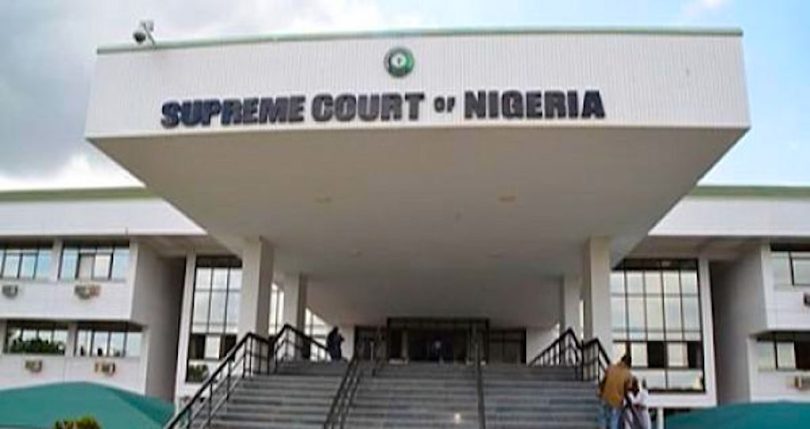The Supreme Court of Nigeria has reserved judgment in a suit filed by the Osun State Government seeking to restrain the Attorney-General of the Federation (AGF) from releasing withheld local government funds to chairmen elected on the platform of the All Progressives Congress (APC).
A seven-man panel of Justices, led by Justice Uwani Aba’aji, reserved the verdict on Tuesday after hearing arguments from both parties in the case marked SC/CV/773/2025.
Justice Aba’aji announced that the date for judgment delivery would be communicated to the parties in due course.
During proceedings, Musbau Adetumbi (SAN) appeared for the Osun State Attorney-General, while Chief Akin Olujimi (SAN) represented the Attorney-General of the Federation.
Osun’s Position
The Osun government, through its Attorney-General, is seeking an order compelling the AGF to release statutory allocations to the chairmen and councillors it recognizes as the validly elected officials for the state’s 30 local government areas.
It also asked the apex court to restrain the AGF from further withholding, suspending, or seizing monthly allocations meant for the councils, arguing that doing so violates the rights of the duly constituted local governments in the state.
The state government based its suit on a letter issued by the AGF that allegedly recognized the disputed APC chairmen, despite pending litigation on their legitimacy.
According to the plaintiff, the election that produced the APC officials as local government chairmen and councillors had been nullified by a Federal High Court—a decision later affirmed by the Court of Appeal in Abuja.
Adetumbi urged the Supreme Court to uphold the state’s claims and grant all the reliefs sought, arguing that the AGF acted ultra vires by recognizing local government officials whose elections had been voided by the courts.
AGF’s Defence
In opposition, Chief Akin Olujimi (SAN) raised a preliminary objection, urging the Supreme Court to dismiss the suit for lack of jurisdiction and competence.
Olujimi contended that the Osun Attorney-General lacked the legal standing (locus standi) to institute the case, as it primarily involved a political dispute between two parties rather than a constitutional conflict between the state and the federation.
He further argued that the matter was not properly brought under the Supreme Court’s original jurisdiction, as claimed by the plaintiff, and that it disclosed no reasonable cause of action.
The AGF’s counsel also maintained that the tenure of the disputed APC chairmen remains valid until October 22, insisting that the statutory allocations should rightfully be released to them to administer their councils.
Olujimi accused the Osun Attorney-General of abuse of court process, citing multiple similar cases allegedly filed in about seven different high courts involving the same subject matter and parties.
He therefore urged the apex court to dismiss the suit in its entirety, describing it as an attempt to relitigate settled issues and interfere with constitutionally recognized local government structures.
The Supreme Court is expected to announce its judgment date soon, a decision that could have far-reaching implications for state–federal financial relations and the autonomy of local governments in Nigeria.

